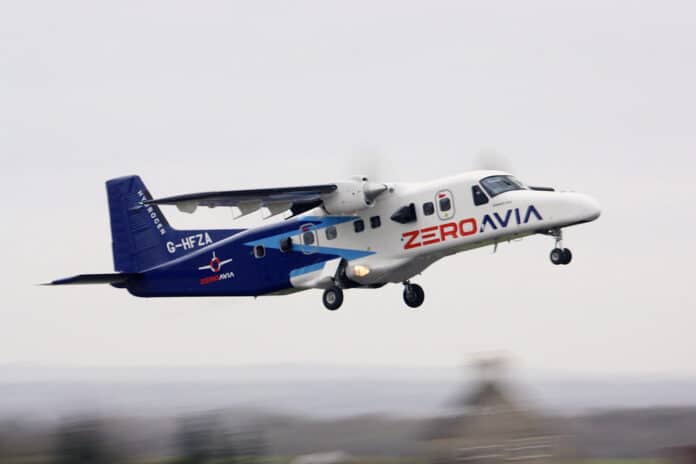The UK Civil Aviation Authority (CAA) has selected three companies to participate in advancing hydrogen readiness in the UK as part of the government-funded Hydrogen Challenge Sandbox.
Launched in November 2023 in support of the UK Government’s Jet Zero Strategy, the Hydrogen Challenge aims to identify innovative, green alternatives for aviation transportation, and hydrogen is among the solutions being considered.
This year, the initiative has moved on to the next phase, which involves real-world testing of hydrogen-based alternatives and addressing potential safety issues. ZeroAvia, one of the pioneers in hydrogen propulsion technology for aviation, is one of the industry partners selected for this initiative.
The company aims to ultimately provide a commercial solution for 40-to-80-seat aircraft. It is developing hydrogen-electric (fuel cell) engines for aviation. It is already flying a prototype system in a Dornier 228 testbed under a CAA Permit to Fly and has submitted its application to certify its first 600kW engine, ZA600.
The company will work with the UK Civil Aviation Authority’s challenge to identify hazards, risks, and safety challenges associated with retrofitting a hydrogen-electric power train.
The other two industry partners selected to participate in the Sandbox phase will focus on different hydrogen technology aspects. Cranfield Aerospace Solutions is developing new-generation aircraft designed to run on hydrogen and is preparing for ground- and flight tests, while the Exeter Airport Consortium will be conducting a deep dive into the efficient integration of hydrogen fuel into ground operations. The Consortium is comprised of several operators and institutions, including Regional & City Airports, TUI, ULEMCo, and Cranfield University.
ZeroAvia has received a considerable amount of pre-orders for its hydrogen powertrain, including for new airliners that could potentially transform the market with eco-friendly fleets. The ZA600 version is meant for shorter distances of up to 300 miles and can accommodate up to 19 passengers, while the 900 kW ZA2000 version will be suitable for regional aircraft.
Surcar Airlines in Spain is considering retrofitting Twin Otter STOLs with the hydrogen-electric powertrain to make tourist travel in the Canary Islands more sustainable. Similarly, UK-based Ecojet plans to retrofit its fleet to become the world’s first fully electric airline.
